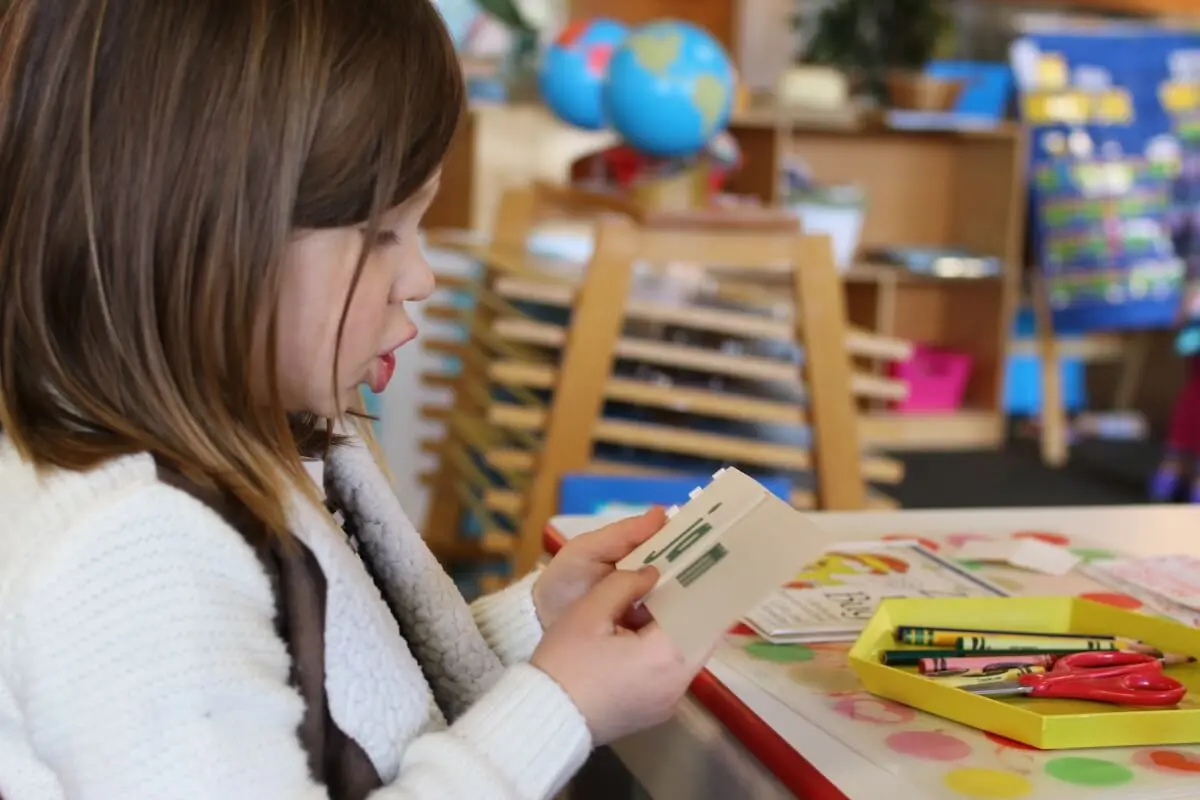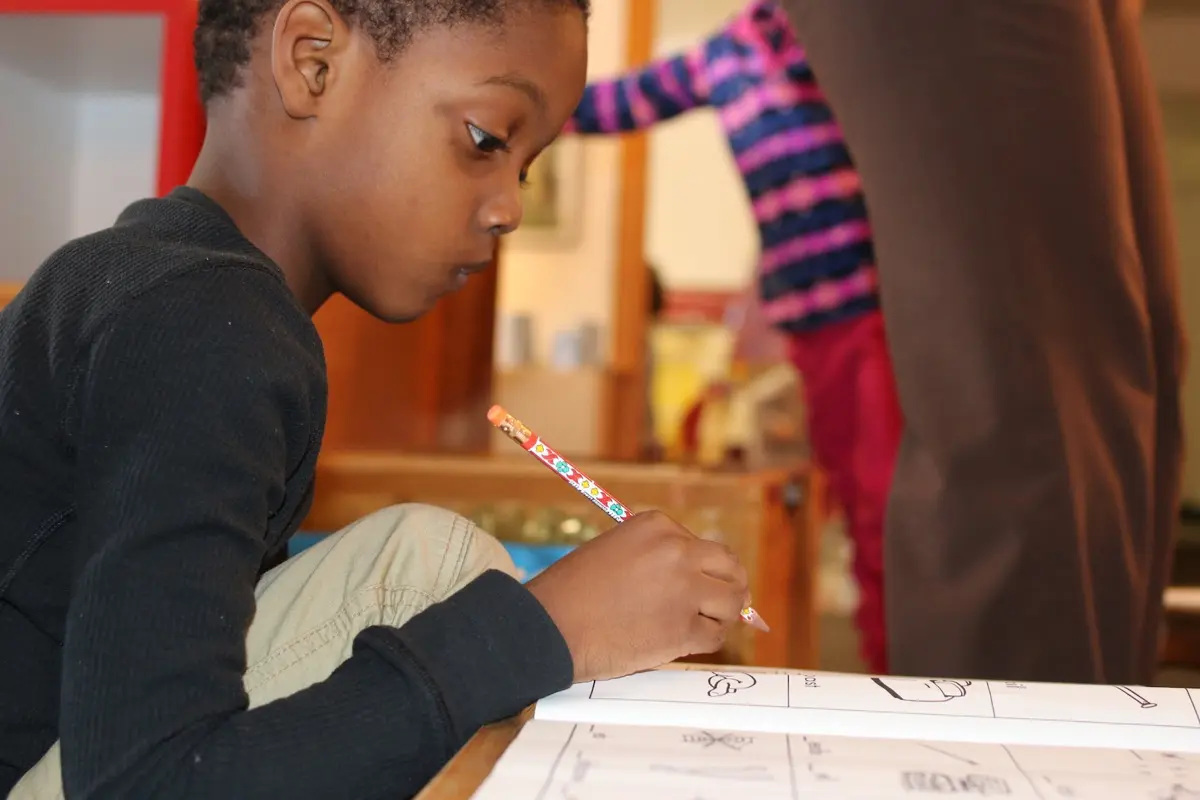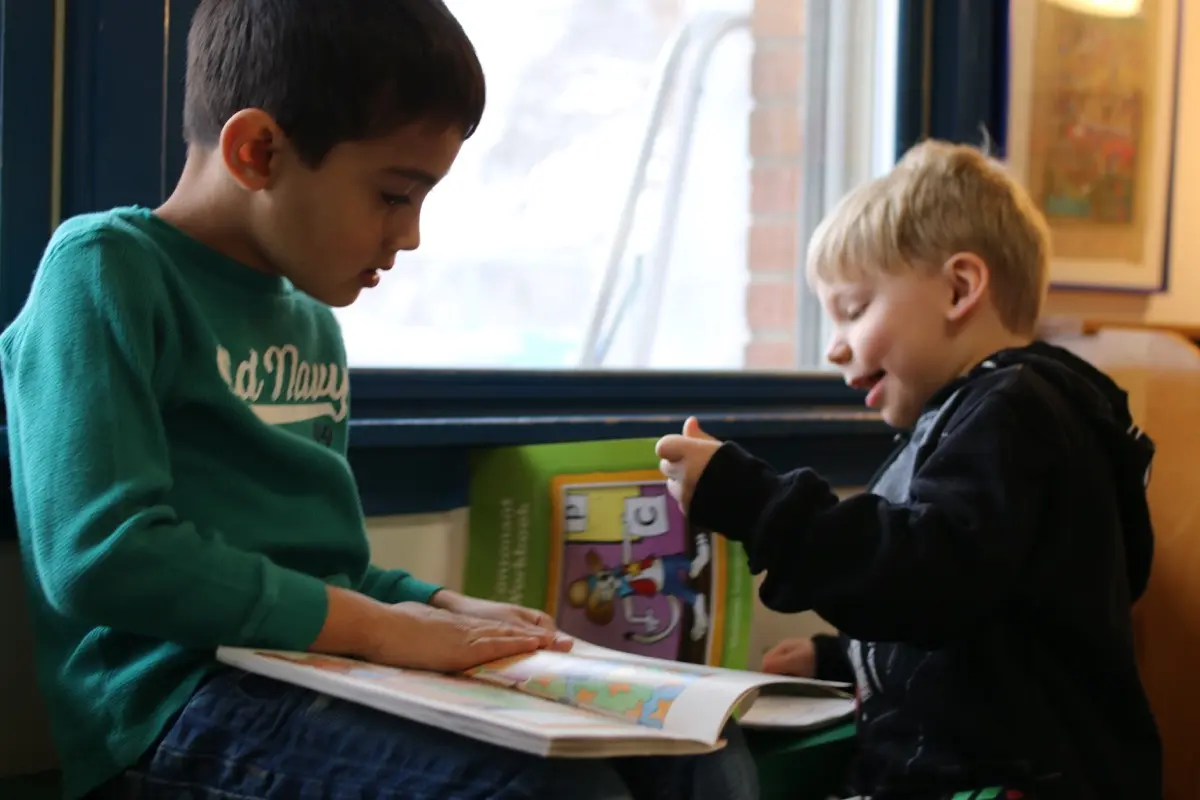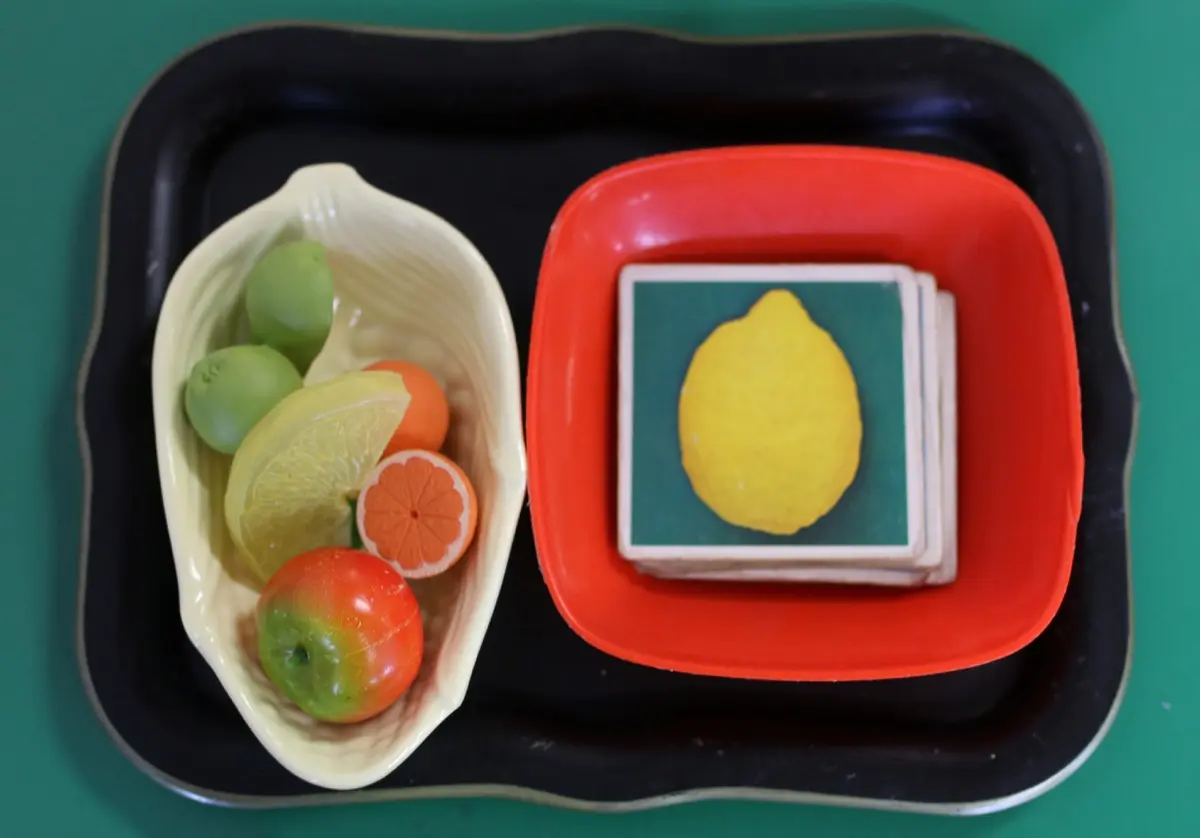The child has a unique sensitivity to language starting at birth through age six.
During this period, the child spontaneously acquires the vocabulary and sentence structure of his/her native language. The Montessori environment provides the child with ample opportunities to explore and deepen his/her spoken language, vocabulary enrichment and language appreciation. The children play word games, sing songs, learn poetry, rhymes and riddles. They listen to and create their own stories. Every area of the room is rich with language. We give “grace and courtesy” lessons on how to communicate a need, a feeling, and a request. We offer the child examples of proper language to use in social situations that come up naturally in the course of the day.
Children love working with the sandpaper letters — such a simple material gives the child profound experience in learning the sound, touch and shape of the letters in the alphabet. The child matches the sound with the symbol first. Then, he/she connects these symbols to form words using the movable alphabet. The child is “writing” without pencil. The mechanical act of learning penmanship is separated from learning the sounds of the letters. Work with the metal insets, the chalkboard, and tracing letters and numbers with a pencil gives the child much practice in the mechanics of writing. Fun with “writing” words with the moveable alphabet eventually turns to reading those same words.
Beginning reading activities are fun and plentiful: matching phonetic words to objects, reading and placing phonetic labels on objects in the classroom, rhyming games, short sentence reading and reading phonetic books. From there the child learns phonograms (oo, sh, ch, oy, etc), again through movement and language games. The child is learning to read! Self-expression through story telling, story writing, art, music, dance and puppet shows is an integral part of the child’s experience at Hopkins Montessori School, LLC.







